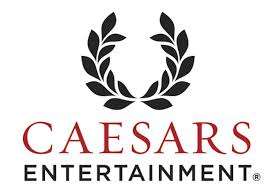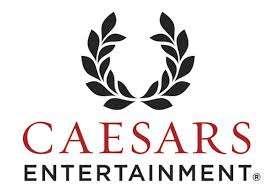Op-Ed: Caesars Softens Anti-PokerStars Stance in Regards to US Legislation
Poker-world onlookers were caught by surprise this week when Caesars Entertainment seemingly modified its stance regarding the eligibility of PokerStars for US licensing for online poker and online gambling services. The sudden shift came with but a single click, that being the “send” button of Caesars Entertainment’s Executive Vice President, Jan Jones-Blackhurst.
 GamblingCompliance beat writer Chris Krafcik reported on Friday that Jones-Blackhurst had told him that Caesars now supports Canada’s Amaya Gaming receiving consideration for licensing across the US. Amaya, the purchase of PokerStars, has seen its US licensing efforts delayed — purportedly by Governor Chris Christie — in New Jersey, and has been targeted by hard-line “tainted asset” provisions in tribe-sponsored California legislation.
GamblingCompliance beat writer Chris Krafcik reported on Friday that Jones-Blackhurst had told him that Caesars now supports Canada’s Amaya Gaming receiving consideration for licensing across the US. Amaya, the purchase of PokerStars, has seen its US licensing efforts delayed — purportedly by Governor Chris Christie — in New Jersey, and has been targeted by hard-line “tainted asset” provisions in tribe-sponsored California legislation.
Here’s what Krafcik Tweeted:
Caesars’ Jan Jones Blackhurst told me the company believes Amaya Gaming Group-PokerStars “should be considered for legalization in the U.S.”
— Chris Krafcik (@CKrafcik) February 13, 2015
The reported statement by Jones-Blackhurst went virtually hand in hand with an announcement in California by the Rincon Band of Luisefio Indians and two other prominent California tribes that the would no longer support the very hard-line stance that they had previously adopted regarding PokerStars and the company’s previous US-facing history. The connection there, of course, is that Caesars has long been been the gaming partner of the Rincon tribal nation, which operates a casino in the mountains to the northeast of San Diego.
As Rincon goes, so goes Caesars, but of the two it’s Caesars Entertainment with the longer reach, and the shift regarding the Amaya-owned PokerStars actually runs contrary to nearly a decade of previous Caesars-Stars conflict.
Back in the pre-UIGEA days, even as the WSOP experienced its first golden era, there was a ton of what could best be described as corporate jealously at Caesars regarding Stars and other online sites, who in 2006 sent a healthy percentage of online qualifiers to the WSOP main event. I don’t know the exact percentage — though it may have been close to half of all ME players, and Caesars (known as Harrah’s back then) breathed a little bit of a sigh of relief when the UIGEA was passed and signed into law in late 2006.
Harrah’s, back then, was a prominent contributor to Sen. Bill Frist, the primary driving force behind UIGEA, and Harrah’s and the WSOP quickly moved in the timeframe of the UIGEA’s passage to bar online qualifiers from any other than Harrah’s-affiliated casinos … thus partially blocking the door to PokerStars, Full Tilt, and other major US-facing sites. (Those sites still found ways to run qualifiers to the ME, which led to other hilarities in the following years, such as Rio staffers running around with rolls of duct tape to cover up logos on players’ gear that advertised online sites.)
Still, the years moved on. Stars and Tilt and UB/Absolute all ran into deepening processing trouble in 2009, 2010 and 2011, culminating in 2011’s “Black Friday” indictments. To many onlookers, it seemed part of a slow but natural progression: The American-based casino naturally wanted to get rid of as much potential competition as possible before its own online-legalization process occurred.
The problem, of course, is that it’s difficult to unring a bell. That’s part of why only three US states to date have successfully legalized online poker, and among those states, it’s in New Jersey where the arm’s length relationship between Caesars and PokerStars continued.
PokerStars, fresh off its non-admittance of guilt in its federal Black Friday settlement, entered into an agreement to purchase the struggling Atlantic Club casino. Caesars, owners of four competing casinos in the struggling Atlantic City market, fought hard against the Stars acquisition, and played a key role in the American Gaming Association’s subsequent interference in the Stars application process. The AGA submitted thousands of pages of Black Friday-related documentation to the New Jersey Division of Gaming Enforcement, essentially in hopes of souring the Stars – Atlantic Club deal.
Some time later, that deal did fall through. The Atlantic Club eventually closed, throwing many casino employees out of work. Stars parent Rational Group entered a new agreement with another Atlantic Club casino; that’s the one which continues to be delayed for unexpected reasons.
But in the midst of all the Atlantic Club nonsense, Stars launched its own allegations against Caesars, asserting that the cash-poor CEI had offered to go easy on Rational Group (if not actually support the PokerStars application process in New Jersey), if Stars would buy one of Caesars’ struggling casino properties.
Stars parent Rational Group declined to buy another casino, at a much higher price. And Caesars, according to Stars, went ahead and supported the interference then launched against the Isle of Man-based company.
That all makes the recent statement by Jones-Blackhurst more interesting in its historical context. All of a sudden, Caesars is pitching itself as at least a tacit defender of Stars’ interests. Yes, PokerStars is now a part of Amaya Gaming, and the old Rational Group / Scheinberg family interests are out of the picture. Yet there’s more to it, perhaps.
These days, Caesars’ long-term interests more closely align with those of PokerStars than at any time in the past. Caesars would like to see US regulatory approval for online gambling in many more states than the three in which it currently exists. Caesars has land-based casinos in 14 states, overall, many of which, including California, are expected to be among the next wave of states to approve online gaming.
Caesars, in fact, already has a deal in place with Amaya as a software partner for one of its Atlantic City casinos. However, given that Caesars has several such deals with different software companies in New Jersey, that’s an example of playing the field in a new market.
More importantly, Caesars is also cash-poor, with its CEOC unit now mired in a fierce bankruptcy battle. Caesars is one of the most pro-online of the major United States’ casino corporations, in general the polar opposite of Sheldon Adelson and Adelson’s Las Vegas Sands Corporation. What’s good for Adelson and LV Sands is bad for Caesars, and vice versa. And that means that Caesars is being negatively impacted by Adelson’s anti-online efforts.
Caesars does not have the money to battle Adelson alone, and Adelson has already successfully neutralized the AGA on the online-gambling issue. Caesars is well positioned, politically if not financially, to battle Adelson, but to make a long story short, the company needs friends. Preferably friends with non-empty pockets.
PokerStars and Amaya represent just the type of friends Caesars could use, if the old enmity can be smoothed over. Jones-Blackhurst’s brief message shouldn’t be read to indicate that Caesars and PokerStars are going to be announcing any deals soon, but sometime down the road, that could occur. Caesars has more land-based casino outposts in more states than any other US casino company, and PokerStars has the brand recognition to help drive traffic to online sites if more states ever get around to formally regulating the game.
That could be in California, or Illinois, or even in Nevada, where Caesars is well-licensed but Stars and Amaya are, for now, persona non grata. Or in any of several other states where both companies could profit from a working relationship.
There won’t be wedding bells any time soon. However, viewed in the ongoing, contentious political climate, a softening of Caesars’ attitudes toward a former old foe makes a whole lot of sense.




















COMMENTS